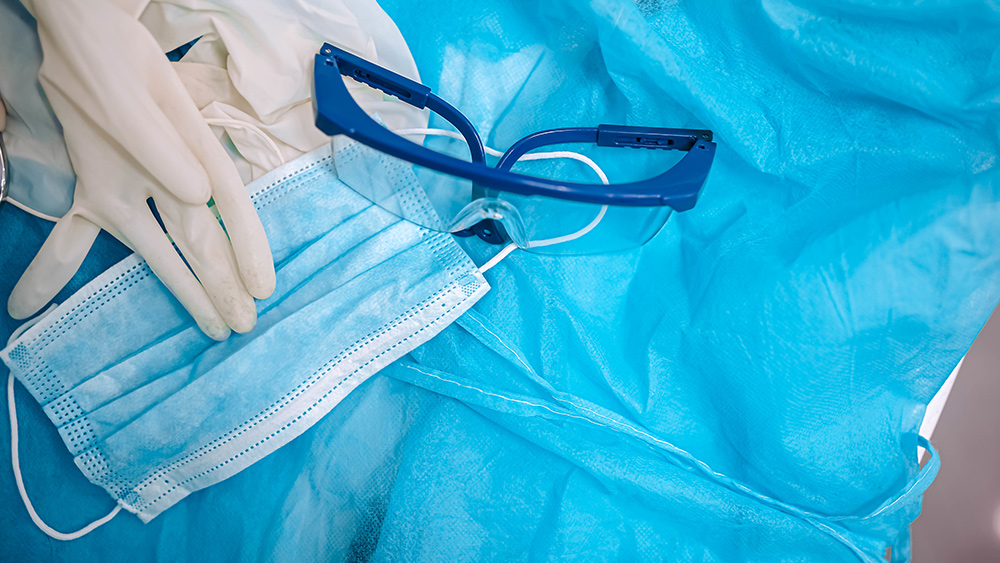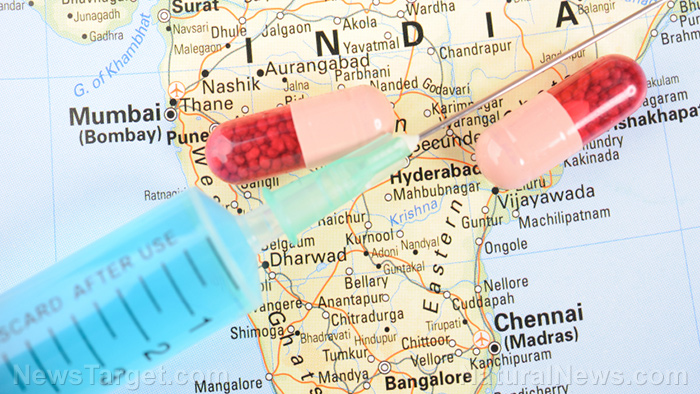What is cellular medicine and how does it lower blood pressure naturally?
05/22/2020 / By Evangelyn Rodriguez

Hypertension, or high blood pressure, is a chronic condition that develops over many years but does not have any symptoms. For people with hypertension, the long-term force exerted by blood against the walls of their arteries is high enough to cause damage, which can be detrimental to their heart health. Hypertension, if left untreated, eventually leads to heart disease and considerably increases the risks of heart attack and stroke.
According to statistics, about 40 percent of adults worldwide aged 25 and above suffer from high blood pressure. Conventional treatments often prescribed by physicians for hypertension include beta-blockers and diuretics. However, these medications only address the symptoms of the condition, not the root cause. While experts say that primary hypertension has no identifiable cause, a new concept known as cellular medicine suggests that chronic deficiency of micronutrients is the main cause of serious health conditions like hypertension.
What is cellular medicine?
Cellular medicine is a novel approach developed by German physician Dr. Matthias Rath that promotes an optimum daily intake of specific micronutrients to maintain good health and effectively control many pathological but preventable conditions.
According to the principles of cellular medicine, the state of a person’s health and the development of diseases are determined at the cellular level, not at the level of organs. This means that the optimum functioning of cells is the foundation of good health, while the opposite is the root cause of chronic diseases.
To ensure optimal functioning, cells need a variety of essential nutrients, which the body is not capable of producing. Hence the goal of cellular medicine is to encourage adequate intake of these micronutrients from health supplements or established food sources to prevent disease-causing cellular malfunction.
Inside cells, essential nutrients like vitamins, minerals and amino acids serve as co-factors, or catalysts, of numerous metabolic processes. These processes are important for the conversion of food into energy, which cells use to support metabolism and to build other bodily structures.
The cells that compose the heart and blood vessels consume vitamins and other nutrients at a much higher rate than any other organ. According to the principles of cellular medicine, this is because of the mechanical stress placed on the heart muscle and coronary arteries by the heart’s continuous beating and the distribution of blood throughout the body.
This is why optimum dietary supplementation of essential nutrients is vital for the maintenance of heart health and the prevention of cardiovascular disease.
Five essential nutrients to combat hypertension
According to cellular medicine, high blood pressure is not only caused by a lack of physical activity, obesity, chronic stress and smoking, but a deficiency of five micronutrients plays a huge role in its development and progression. Here are the essential nutrients you need to normalize your blood pressure and prevent heart disease:
- Vitamin C — Known as a powerful antioxidant, vitamin C helps stabilize blood vessel walls and optimize blood flow and viscosity. Vitamin C can be found in fruits like cantaloupe, berries, citrus fruits and mangoes, and vegetables like broccoli, green and red peppers, tomatoes, potatoes and spinach.
- Arginine — This amino acid is important for the production of nitric oxide, which is a known natural vasodilator. Arginine can be obtained from nuts (walnuts, almonds) and seeds (pumpkin seeds, watermelon seeds), meat products (chicken, beef), legumes (soybeans, chickpeas) and seaweed.
- Magnesium — Besides helping with calcium absorption, magnesium also helps keep the artery walls elastic. Rich sources of this mineral include dark chocolate, fruits like avocado and raspberries, vegetables like artichoke and green beans, legumes, nuts, seeds, whole grains and seafood.
- Proline and lysine — These key amino acids are said to protect the walls of the arteries from damage and prevent atherosclerosis. Proline can be found in milk, dairy products, legumes, yogurt and red meat, while lysine can be obtained from red meat, cheese, fish like cod and sardines, eggs, soybeans, spirulina and fenugreek seeds.
Despite its lack of symptoms, hypertension can be easily detected as well as prevented. Lower your risk of heart disease and maintain a healthy blood pressure by ensuring you get sufficient amounts of vitamin C, arginine, magnesium, proline and lysine from your daily diet.
Sources include:
Tagged Under: #nutrition, alternative medicine, Arginine, blood pressure, cellular medicine, disease prevention, food cures, food is medicine, functional food, heart disease, heart health, hypertension, lysine, Magnesium, natural cures, natural medicine, nutrients, proline, remedies, supplements, vitamin C




















